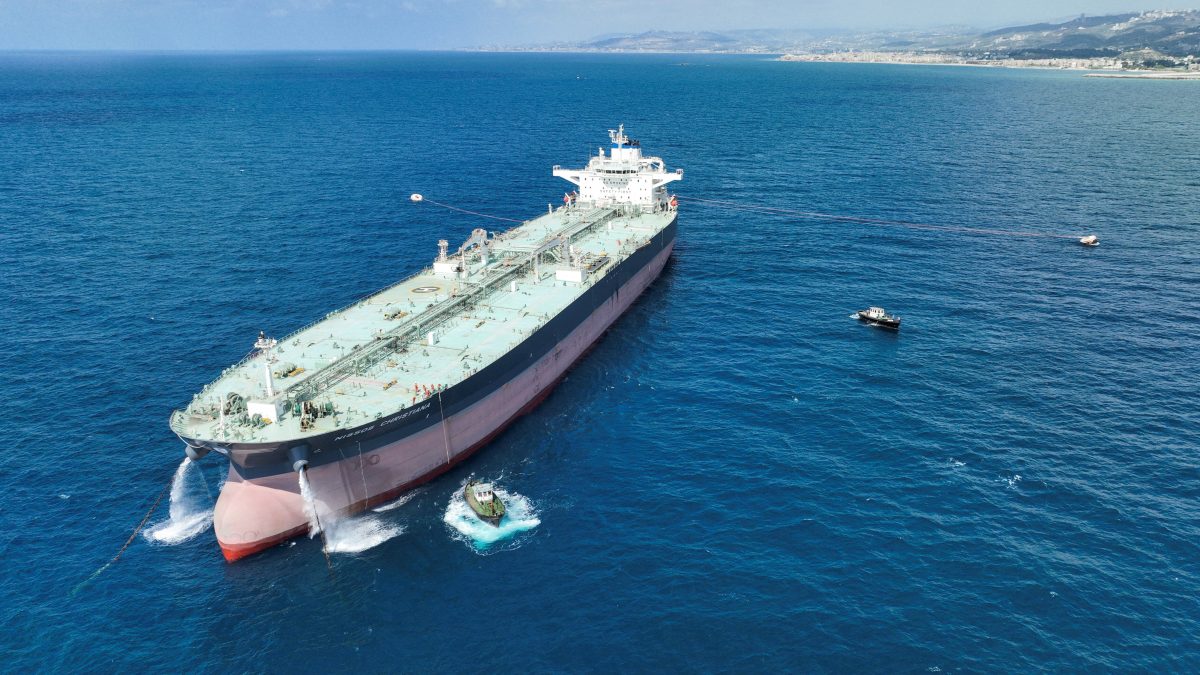China’s sudden purchase of 2.7 million tonnes of crude from oil-importing Indonesia raises questions over whether Iranian barrels are being rerouted through Southeast Asia to evade US sanctions
China’s crude oil import data for August revealed a striking anomaly: 2.7 million tonnes of crude, or about 630,000 barrels per day, were recorded as coming from Indonesia. That scale of imports is extraordinary for several reasons. Indonesia, Southeast Asia’s largest economy, has long been a net oil importer, meeting its domestic consumption needs through purchases abroad for more than two decades. Its output of around 580,000 barrels per day in 2022 barely covered a fraction of its demand of nearly 1.7 million barrels daily.
For Beijing to be buying volumes exceeding Indonesia’s entire production raises questions about the true source of these flows, Bloomberg reported.
Indonesia as a surprising oil hub
The role of Indonesia in this trade puzzle is all the more curious because it does not operate as a major crude exporter. Customs and local statistics show limited outbound crude flows, far short of the figures declared by China. The ports involved, such as Kabil on Batam Island near Singapore, are not linked to crude-export terminals. Yet ship-tracking data reveal tankers signaling calls at Kabil before later discharging cargoes in Chinese ports such as Qingdao, Dalian and Rizhao.
At least four vessels — the Aquaris, Yuhan, Pola and Pix — appear central to this movement. These ships reportedly paused at Kabil, switched signals to nearby Malaysian waters, received cargoes linked to Iranian supply, and then sailed onward to China. Their draft readings and discharge records suggest the oil they carried was not Indonesian in origin but rather rebranded elsewhere before reaching Chinese buyers.
The Iranian connection
The broader context is critical. Despite official customs data recording no Iranian crude imports since mid-2022, China is widely recognised as the single largest buyer of Iranian oil. These flows serve as a vital economic lifeline for Tehran, enabling it to withstand US sanctions while providing China with discounted barrels to support its energy security strategy. Yet the trade remains opaque, relying heavily on shadow fleets, ship-to-ship transfers and shifting identities of cargoes.
For years, Malaysian waters have served as a staging point for these operations. Tankers often declare Malaysia as their point of origin, even though the country produces less oil than China claims to import from it. The sudden rise in Chinese imports from Indonesia coincided with a sharp decline in declared flows from Malaysia, which fell by more than 30 per cent over the past two months. The timing reinforces suspicions that Indonesia is now serving as another link in the same rerouting chain, Bloomberg reported.
US pressure and tactical adaptation
The rerouting coincides with renewed scrutiny from Washington. Under the Trump administration, maximum pressure has been applied to curtail Iranian crude sales. Shadow trades have had to adapt, shifting staging points and disguising cargo origins to minimise detection. Indonesia, strategically located near Malaysia and Singapore, offers an ideal alternative hub for such ship-to-ship activity.
Tankers such as the Aquaris and Pola have been observed engaging in multiple voyages that align with this pattern. In one case, Aquaris signaled Kabil, diverted to Johor waters, received Iranian oil from a sanctioned vessel and then discharged the cargo in Qingdao. The Pola similarly left Kabil, lifted crude offshore Malaysia, and unloaded it in Dalian before returning for another round. These repeating voyages indicate a systemised effort rather than isolated anomalies.
Silence of stakeholders
Indonesian authorities, including the energy ministry, Pertamina and Kabil port officials, have not responded to inquiries about the flows. China’s Ministry of Foreign Affairs has also remained silent. The absence of explanations underscores the sensitive nature of the trade. Meanwhile, the operators of the tankers involved have either declined to comment or not responded at all. The silence leaves customs declarations as the only public-facing trace of the trade, though vessel-tracking data provide a more revealing picture of the underlying dynamics.
Implications for global oil politics
This development signals both continuity and evolution in the way Iranian oil reaches China. The basic pattern of disguise remains unchanged — involving ship-to-ship transfers, rebranding of cargoes and misattribution to third countries. What has shifted is geography. Indonesia now appears to be added to the network of conduits. For Tehran, the persistence of sales provides a financial lifeline, while Beijing secures affordable crude supplies at a time of heightened energy insecurity.
For Washington, however, the case highlights the limits of sanctions enforcement. Even when specific tankers, ports, and terminals are sanctioned, the adaptability of maritime operators allows the trade to continue with only superficial alterations. The involvement of Indonesia, an oil importer, also complicates global monitoring because it stretches credibility but nonetheless appears in official customs statistics.
A curious anomaly or a new normal?
Whether this rerouting through Indonesia becomes a permanent fixture or a temporary adaptation remains to be seen. What is clear is that China’s sudden surge in Indonesian crude imports is not rooted in geology or production capacity but in geopolitics and sanction evasion. If Malaysia once served as the main staging hub, Indonesia may now be taking on that role. The 2.7 million tonnes imported in August stand as a testament to the ingenuity of operators in sustaining flows that officially do not exist, even as scrutiny intensifies.
End of Article

)

)